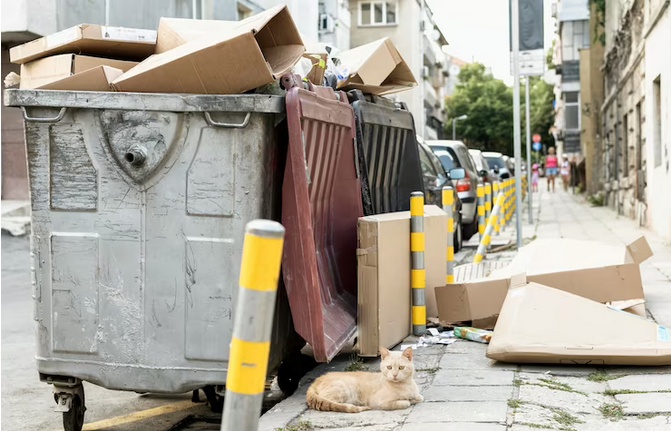Introduction:
Recycling is a crucial component of sustainable waste management, and it plays a significant role in creating a greener and more environmentally friendly city. Birmingham, a vibrant city in the United Kingdom, has recognized the importance of recycling and has implemented various initiatives to encourage its residents to participate actively. In this article, we will provide a comprehensive guide to Birmingham recycling, offering essential tips and tricks to make recycling an effortless and effective practice for everyone. By the end of this article, you will have a thorough understanding of the benefits of recycling, the recycling process in Birmingham, and practical ways to contribute to a greener city.
Understanding the Benefits of Recycling:
Recycling offers a myriad of benefits, both for the environment and the community. Here are some of the key advantages of recycling:
a. Resource Conservation: Recycling conserves valuable natural resources by reducing the need for raw materials extraction. By reusing materials like paper, glass, and plastic, we can minimize our impact on forests, water sources, and ecosystems.
b. Energy Savings: The recycling process consumes less energy compared to the production of goods from raw materials. By recycling, we can significantly reduce energy consumption and decrease greenhouse gas emissions, contributing to climate change mitigation.
c. Waste Reduction: Recycling diverts waste from landfills, extending their lifespan and reducing the need for new landfill sites. This reduces the environmental and social costs associated with landfilling waste.
d. Job Creation: Recycling initiatives create employment opportunities in waste collection, sorting facilities, and manufacturing industries that utilize recycled materials. This can boost the local economy and enhance community development.
Birmingham's Recycling Initiatives:
Birmingham has taken significant steps to promote recycling and improve waste management within the city. The local authorities have implemented the following initiatives:
a. Curbside Recycling: Birmingham offers curbside recycling collection, providing residents with separate bins for recyclables. Recycling collection schedules are usually synchronized with regular bin collection days, making it convenient for residents to participate in recycling efforts.
b. Recycling Drop-Off Points: The city has established various recycling drop-off points to accommodate residents who may not have access to curbside recycling. These drop-off points are strategically located to ensure easy and accessible recycling facilities for all.
c. Community Outreach: Birmingham actively engages with the community through educational programs and campaigns to raise awareness about the benefits of recycling and the correct ways to recycle. This helps in encouraging active participation and making recycling a norm in the city.
Practical Recycling Tips and Tricks:
Here are some helpful tips and tricks to make recycling in Birmingham a seamless and successful process:
a. Know What to Recycle: Familiarize yourself with the recycling guidelines provided by the local authorities. Pay attention to what can and cannot be recycled in Birmingham to avoid contamination and ensure the effectiveness of the recycling process.
b. Rinse and Dry: Before recycling items such as bottles, cans, and containers, make sure to rinse them thoroughly to remove any remaining food residue or liquids. Dry them before placing them in the recycling bin to prevent mold or bacteria growth.
c. Flatten Cardboard: Flatten cardboard boxes before recycling to save space in your recycling bin. This also makes it easier for recycling facilities to process and sort the cardboard.
d. Avoid Plastic Bags: Do not place recyclables in plastic bags, as they can cause problems during the recycling process. Instead, use reusable bags or put recyclables directly into the recycling bin.
e. Reduce and Reuse: Embrace the principles of "reduce" and "reuse" to minimize waste generation. Purchase items with minimal packaging, opt for reusable products, and repurpose items whenever possible.
f. Donate and Upcycle: Consider donating gently used items to local charities or upcycling them into new and creative products. This not only reduces waste but also supports community organizations and promotes sustainable living.
Conclusion:
Recycling is an integral part of creating a greener and more sustainable city. Birmingham's recycling initiatives, including curbside recycling and community outreach programs, provide residents with the necessary tools and resources to actively participate in recycling efforts. By understanding the benefits of recycling, adhering to recycling guidelines, and implementing practical tips and tricks, individuals can make a significant impact on waste reduction and resource conservation in Birmingham. By working together, residents can contribute to a cleaner and healthier city, fostering a sustainable future for generations to come.


No comments yet